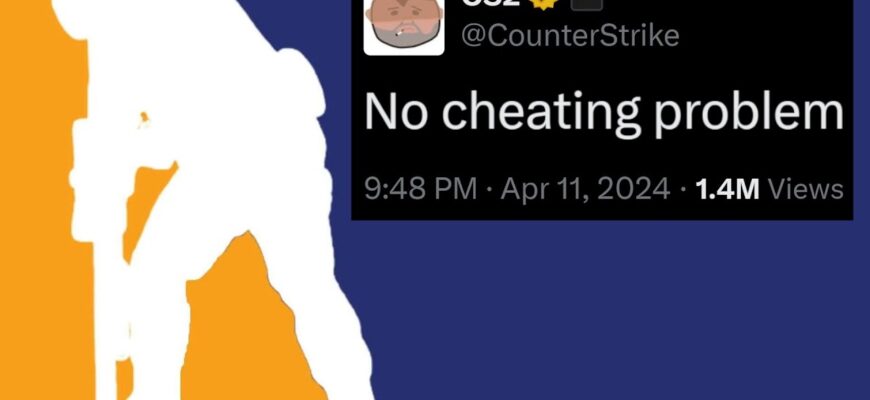In the fiercely competitive arena of esports, where talent and dedication should reign supreme, the integrity of play is paramount. Recently, the Champion of Champions Tour (CCT) took decisive action, delivering a stern message to those who sought to undermine the spirit of fair competition in Counter-Strike 2.
The latest incident unfolded during the CCT Europe Season 3, a significant Tier 2 online Counter-Strike tournament. On September 29th, 2025, a match between teams THE and 1Win became the unwitting catalyst for a thorough investigation. What began as a standard competitive fixture quickly unraveled into a comprehensive inquiry following the detection of highly suspicious activity.
The Digital Eye: How Integrity Cameras Exposed Deception
CCT, in its commitment to fostering a fair competitive environment, had implemented a crucial safeguard for its online matches: the integrity camera. This requirement mandates a live, unedited video feed of each player throughout their match. During the subsequent investigation, this tool proved invaluable. It became glaringly obvious that the camera feed associated with Idris ‘1Drezz’ Beksulanov from team THE strikingly failed to match the individual actually competing in the server. One might consider this a rather fundamental oversight for those attempting a digital deception, highlighting perhaps a certain overconfidence.
Further scrutiny, significantly aided by the robust Akros anti-cheat system, swiftly confirmed the initial suspicions. The investigation revealed that Raiymbek ‘dune’ Dusenov, a player affiliated with team KHAN, was actively playing on 1Drezz’s account. Such brazen account sharing, a clear violation of competitive rules, resulted in a definitive two-year ban for ‘dune’. However, the revelations did not conclude there; the rabbit hole extended far deeper.
The Unblinking Sentinel: Anti-Cheat Uncovers Widespread Infractions
The Akros anti-cheat system, acting as an unblinking digital sentinel, subsequently flagged several other players for the use of prohibited software—a direct breach of competitive integrity. The detailed findings led to substantial penalties for multiple individuals across three different teams:
- Dastan ‘dosikk’ Mauessov – 2 years (Team KHAN)
- Daniil ‘tEO’ Pro – 2 years (Team KHAN)
- Nurmukhammed ‘singulier’ Mugal – 2 years (Team Y5)
- Zhanibek ‘R3LiFwOW’ Kuatov – 2 years (Team Y5)
- Idris ‘1Drezz’ Beksulanov – 2 years (Team THE)
- Mark ‘d0RREN’ Karachevtsev – 2 years (Team THE)
- Raiymbek ‘dune’ Dusenov – 2 years (Team KHAN, for account sharing)
Each of these players received a two-year ban from all CCT events, a consequence designed to underscore the seriousness of their actions. It appears that a collective ambition for victory may have tragically overshadowed a commitment to ethical competition.
Ripple Effect: Team Accountability and Broader Implications
The fallout from these discoveries extended beyond the directly implicated individuals. In a move reinforcing team accountability, all remaining players representing teams KHAN, THE, and Y5, even those not directly involved in the detected infractions, received a six-month ban from all CCT events. This serves as a stark reminder that in team-based esports, the actions of a few can ripple through an entire roster, necessitating collective responsibility.
This incident, while significant, is not an isolated occurrence within the broader 2025 esports landscape. The industry, particularly within Counter-Strike 2, continues its ongoing battle against attempts to circumvent fair play. Earlier in April, the Esports Integrity Commission (ESIC) issued a lifetime ban to Swedish player Joel ‘joel’ Holmlund for severe breaches of its code of conduct. Furthermore, ESIC uncovered a widespread match-fixing scheme involving ATOX Esports players and staff in May, leading to extensive bans and underscoring the multi-faceted challenges to esports integrity.
The Unending Battle for Fair Play
These concerted efforts by organizations such as CCT and ESIC highlight a fundamental truth: the credibility and long-term viability of competitive esports hinge entirely on fair play. While the battle against cheating is an ongoing arms race—an incessant dance between innovation in exploits and advancements in detection technology—each decisive action taken reinforces the integrity of the game and bolsters spectator trust. For aspiring professional players, the message is unequivocally clear: the path to glory is paved with genuine skill, unwavering dedication, and uncompromising ethical standards, not with digital shortcuts that ultimately lead to ignominy and a tarnished reputation.








